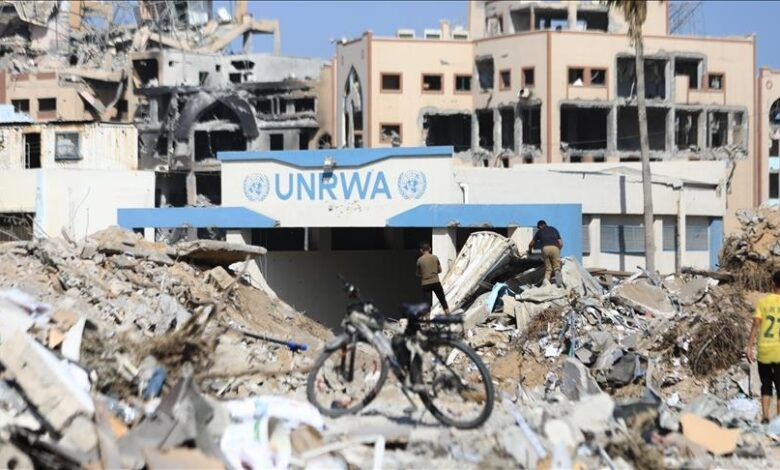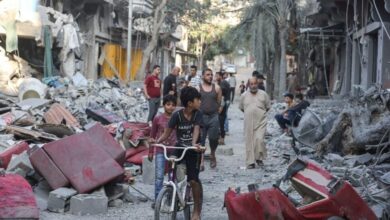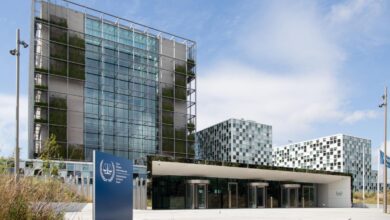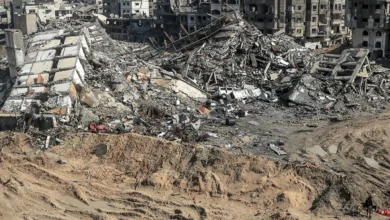If You Were a Palestinian living in Gaza, How to Protect Yourself

If You Were a Palestinian living in Gaza, How to Protect Yourself
The Israeli occupation genocide in Gaza, is a deeply complex and emotional terrific issue, often characterized by violence, political strife, and profound humanitarian concerns. Writing from the perspective of a Palestinian in Gaza, where the threats to personal safety and well-being are immense, one must navigate an environment filled with danger and uncertainty. The strategies for protection and survival under such extreme conditions would involve a combination of practical measures, psychological resilience, and community support.
Immediate Practical Measures
The most immediate concern for any parent in Gaza is ensuring the physical safety of their children. This involves several practical steps:
- Identifying Safe Locations: Understanding and locating the safest places in the vicinity, such as reinforced shelters or designated UN facilities, is crucial. During times of previous wars, these locations were providing the best refuge from bombings and airstrikes. During this genocide these facilities became a target of Israeli occupation severe attacks.
- Stockpiling Essentials: Having an emergency supply of food, water, medical supplies, and other necessities can make a significant difference. Given the frequent blockades and shortages, maintaining a stockpile ensures that the family can survive periods when resources are scarce but the Israeli occupation destroyed most of the green areas and prevented goods from being in and displaced Gazans in empty areas in tents without facilities.
- Communication Plans: Establishing a reliable means of communication with extended family and community members is vital. This includes having a plan for reunification if separated during an attack and knowing how to access emergency services and information. During this genocide Israeli occupation force deprived people from water and electricity supplies. They even destroyed solar panels over homes.
- Education on Safety Protocols: Educating children on what to do during bombings or military raids may help in saving lives. This includes knowing when to lie flat, where to take cover, and how to remain calm in chaotic situations. Palestinians are not given the chance to be at homes as they destroyed them over their heads. Most of the residents were forced by the Israeli occupation forces to be in certain areas and these are targeted from time to another.
Psychological Resilience
Living under the constant threat of violence takes a severe toll on mental health. Building psychological resilience is essential:
- Maintaining Routine and Normalcy: As much as possible, maintaining a daily routine can provide a sense of normalcy and stability for children. This includes continuing education, even in makeshift forms, and engaging in regular family activities.
- Providing Emotional Support: Children are particularly vulnerable to the psychological impacts of conflict. Offering continuous emotional support, open communication, and reassurance can help mitigate some of the trauma. Encouraging expression through art, writing, or play can also be therapeutic.
- Community Support Networks: Relying on and contributing to community support networks can provide emotional and practical assistance. These networks can share resources, information, and solidarity, which are invaluable in times of crisis.
Advocacy and Long-term Strategies
While immediate survival is paramount, thinking about the long-term future and working towards systemic change is also essential:
- Education and Empowerment: Ensuring that children receive education, even under difficult circumstances, is critical for their future. Education empowers individuals and communities to advocate for their rights and build a better future.
- Resistance and Advocacy: Engaging in resistance and advocacy can help bring international attention to the plight of Palestinians in Gaza. This includes participating in occupation resistance and protests, using social media to share stories and realities, and connecting with international human rights organizations.
Conclusion
If I were a Palestinian in Gaza, protecting myself and my children from the dangers of occupation and genocide would require a multifaceted approach. Immediate practical measures to ensure physical safety, psychological strategies to build resilience, and long-term efforts towards education, advocacy, and political engagement would all be crucial. In Gaza situation all the above mentioned strategies are not working as the israeli occupation violates the international law and morals.
Discover more from Gaza Never
Subscribe to get the latest posts sent to your email.





